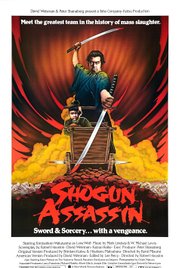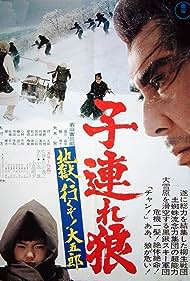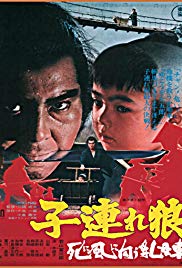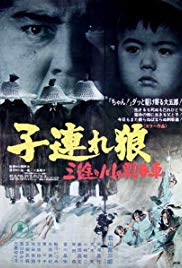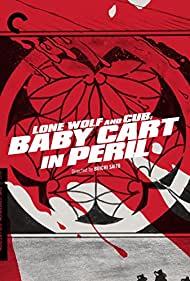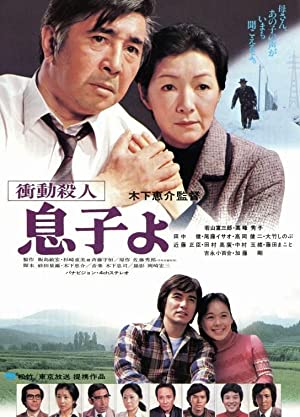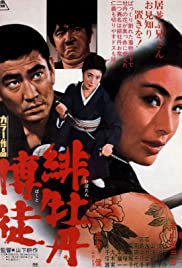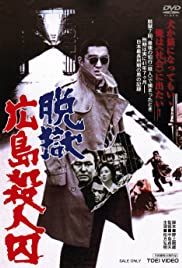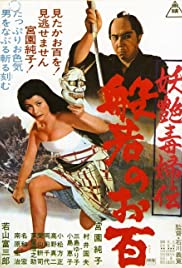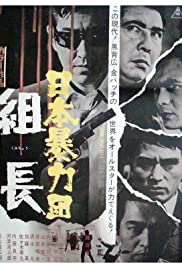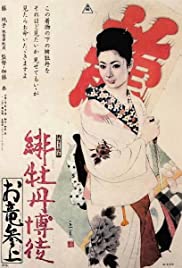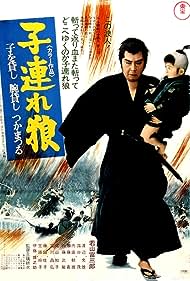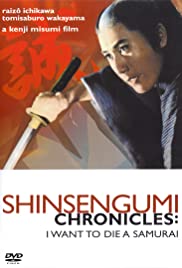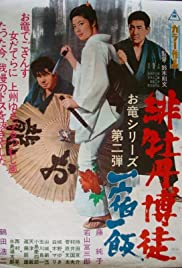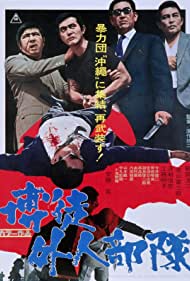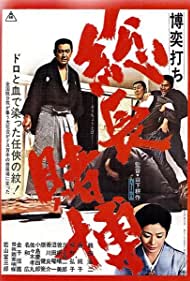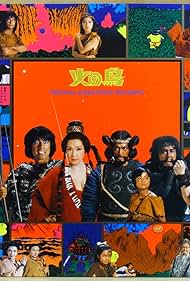AZMovies - Watch Movies Online For Free
AZMovies - All Tomisaburo Wakayama
White Snake Enchantm
White Snake Enchantment (1983)
The love triangle between a lustful priest, his second wife and his son.
Shogun Assassin (198
Shogun Assassin (1980)
When the wife of the Shogun's Decapitator is murdered and he is ordered to commit suicide by the paranoid Shogun, he and his four-year-old son escape and become assassins for hire, embarking on a journey of blood and violent death.
Lone Wolf and Cub Wh
Lone Wolf and Cub White Heaven in Hell (1974)
Lone Wolf and Cub White Heaven in Hell 1974 The final film, and the final confrontation between Ogami and Retsudo With most of his family already dead at Ogamis hands, Retsudo launches one last plot to destroy him, and when that fails, unleashes the fury of every remaining member of the Yagyu Clan
Lone Wolf and Cub: B
Lone Wolf and Cub: Baby Cart to Hades (1972)
Lone Wolf and Cub: Baby Cart to Hades (1972) Ogami Itto volunteers to be tortured by the yakuza to save a prostitute and is hired by their leader to kill an evil chamberlain.
The Bad News Bears G
The Bad News Bears Go to Japan (1978)
The Bad News Bears Go to Japan (1978) In this third film of the Bad News Bears series, Tony Curtis plays a small time promoter/hustler who takes the pint-sized baseball team to Japan for a match against the country's best little league baseball team which sparks off a series of adventures and mishap
Lone Wolf and Cub: B
Lone Wolf and Cub: Baby Cart at the River Styx (1972)
Lone Wolf and Cub: Baby Cart at the River Styx (1972) In the second film of the Lone Wolf and Cub series, Ogami Itto battles a group of female ninja in the employ of the Yagyu clan and must assassinate a traitor who plans to sell his clan's secrets to the Shogunate.
Lone Wolf and Cub Ba
Lone Wolf and Cub Baby Cart in Peril (1972)
Lone Wolf and Cub Baby Cart in Peril 1972 Fourth film in the Lone Wolf and Cub series Ogami is hired to kill a tattooed female assassin Gunbei Yagyu, an enemy samurai, happens upon Ogamis son, and sees his chance for revenge
Shodo satsujin: Musu
Shodo satsujin: Musuko yo (1979)
Shodo satsujin: Musuko yo (1979) A man whose son has been murdered pushes to create laws to financially protect victims' families.
Red Peony Gambler (1
Red Peony Gambler (1968)
Red Peony Gambler (1968) Oryu (Fuji Junko) is invited to stay with a local yakuza boss of a silk farming town. When a rival gang murders the boss Oryu takes it upon herself to protect his business and family.
Datsugoku Hiroshima
Datsugoku Hiroshima satsujinshû (1974)
Masayuki Ueda is sent to prison for murder, but is unable to be contained for long
Ohyaku: The Female D
Ohyaku: The Female Demon (1968)
Ohyaku: The Female Demon (1968) A female acrobat and a thief plans to steal the gold from the mint. The evil manager have his own plans.
Japan Organized Crim
Japan Organized Crime Boss (2000)
Japan Organized Crime Boss (2000) Coming out of jail and hoping for a quiet life, Yokohama yakuza has to take the lead of his gang after the death of his boss. His small group is is taken in a crossfire between a big yakuza...
Hibotan bakuto: Oryû sanjô (1970)
Hibotan bakuto: Oryû sanjô (1970) Oryu searches for a blind girl she left behind but gets involved in a Yakuza turf war.
Lone Wolf and Cub Sw
Lone Wolf and Cub Sword of Vengeance (1972)
Lone Wolf and Cub Sword of Vengeance 1972 In this first film of the Lone Wolf and Cub series, adapted from the manga by Kazuo Koike, we are told the story of the Lone Wolf and Cubs origin Ogami Itto, the official Shogunate executioner, has been framed for disloyalty to the Shogunate by the Yagyu cla
Shinsengumi Chronicl
Shinsengumi Chronicles (1963)
Shinsengumi Chronicles (1963) As change sweep Japan, an honest man joins the Shinsengumi out of respect for their leader and because he wants to live and die as a samurai. However, as his involvement goes, reality and idealism come into deadly conflict.
Hibotan bakuto: Issh
Hibotan bakuto: Isshuku ippan (1968)
Hibotan bakuto: Isshuku ippan (1968) A local Yakuza boss of a silk farming town shows kindness to the wandering gambler Oryu by letting her stay at his residence.
Sympathy for the Und
Sympathy for the Underdog (1971)
Sympathy for the Underdog 1971 A yakuza gang gets driven out of Yokohama by a big gang from Tokyo They relocate to Okinawa to violently start over
Bakuchiuci Socho Tob
Bakuchiuci Socho Tobaku (1968)
Bakuchiuci Socho Tobaku 1968 Tokyo, 1934 The boss of the clan that controls gambling agonizes and some of his followers propose to Nakai to take his place, but he refuses the offer and suggests they choose Matsuda, who is in prison
Hi no tori (1978)
Hi no tori (1978)
Hi no tori 1978 This extraordinarily complex film is not only a send up of every samurai film ever made, it is also an extrapolation of the value of life The Yamatai, represented by Prince Susano O and elderly advisor Sumuke, hire Yumihiko of Matsuro to hunt the phoenix so that Queen Himiko, sister

